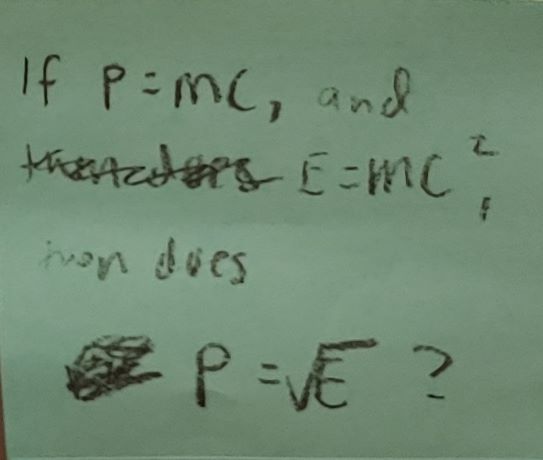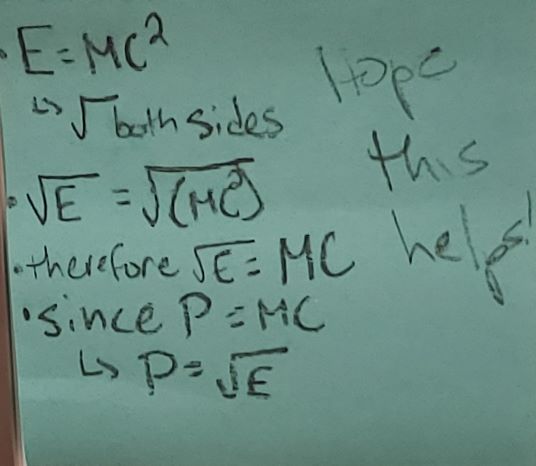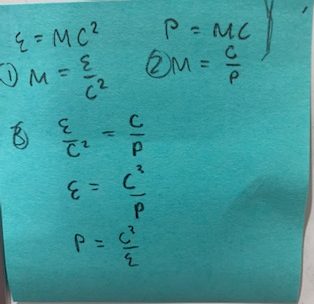

Unfortunately, this sounds a bit like a homework question, so I’m going to decline to answer for now. However, I will note that my friend’s proof above is not the correct path. The correct form of the equation is E=M*(C^2), but the helper has assumed (or incorrectly stated), that E=(M*C)^2 in their proof. You cannot root both sides cleanly: √E=(√M)*C.

These are all correct. I’m honestly unsure that P can equal √E. But any physics faculty member can probably help answer that definitively.

